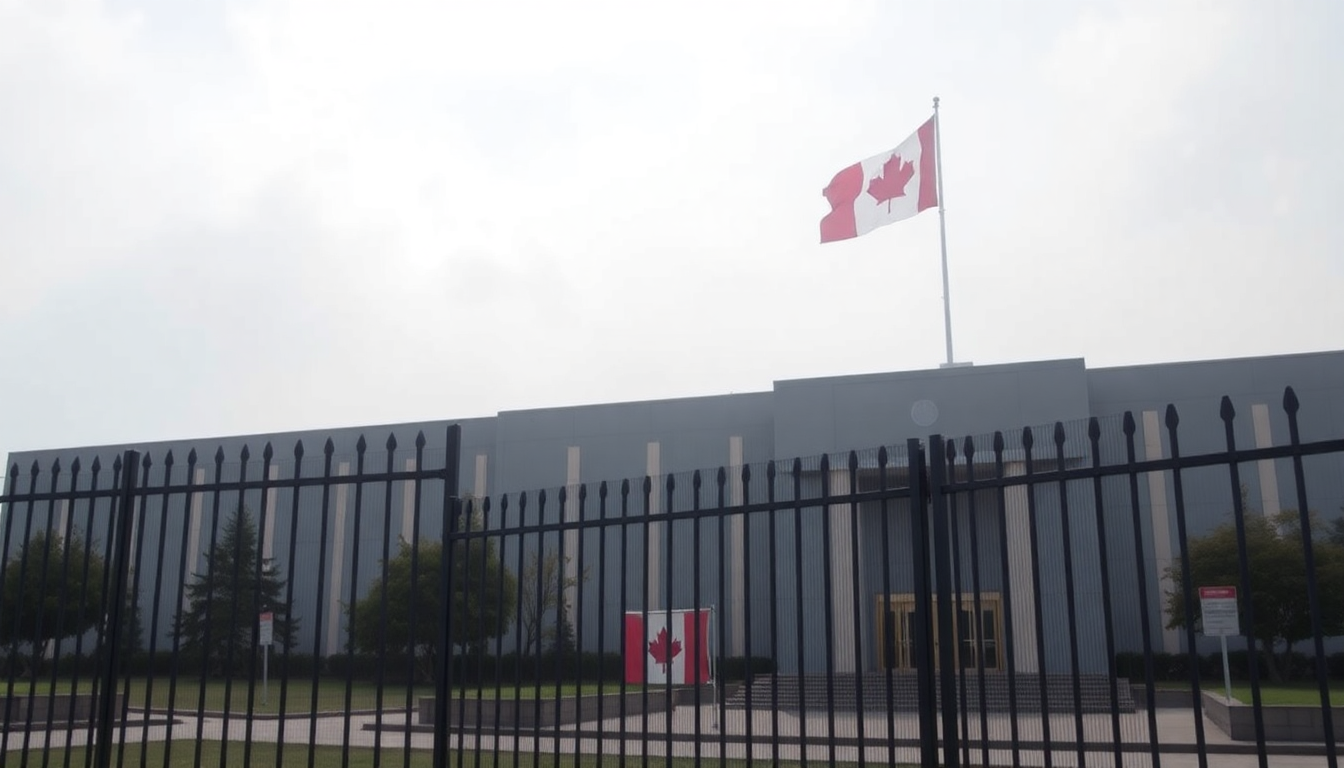Table of Contents
Canada recently made headlines by announcing a halt to all operations of Hikvision, a Chinese surveillance company. This bold move has sparked a wave of diplomatic tension between Ottawa and Beijing. Canada’s Industry Minister, Melanie Joly, emphasized that Hikvision’s ongoing activities posed a potential risk to national security, prompting the government to take decisive action. But what does this mean for the relationship between Canada and China? Critics from China are already voicing their concerns, arguing that this decision could have serious repercussions for trade relations and complicate efforts to improve ties between the two nations.
The Hikvision Controversy: A Closer Look
So, what’s the story behind Hikvision? Based in Hangzhou, it’s one of the world’s leading manufacturers of security cameras and surveillance equipment. However, the company has been under a cloud of suspicion for its connections to controversial surveillance programs run by the Chinese government, particularly those targeting the Uighur population in Xinjiang. Back in 2019, the U.S. government added Hikvision to a blacklist due to its alleged involvement in human rights violations. These serious allegations raise important questions about the company’s role on the global stage and the potential impact on international relations.
In response to Canada’s recent announcement, China’s Ministry of Commerce didn’t hold back. They criticized Ottawa for what they see as an overgeneralization of national security threats, claiming such actions undermine the rights of Chinese businesses and erode mutual trust. They also argued that Canada’s decision disrupts normal trade relations, urging the Canadian government to reconsider its stance. This ongoing feud highlights the *fragile state* of Canada-China relations, which have faced numerous hurdles in recent years.
The Impact on Canada-China Relations
The decision to ban Hikvision’s operations is a pivotal moment in the shifting diplomatic landscape between Canada and China, especially in light of Prime Minister Mark Carney’s recent electoral victory. His administration had previously indicated a desire to mend fences with Beijing, a relationship that has been strained due to various incidents, including the arrest of a Chinese executive in Canada and China’s retaliatory actions against Canadian citizens.
Things have gotten even murkier with allegations of Chinese interference in Canadian elections, making diplomatic discussions all the more complicated. As Canada reevaluates its national security strategies, its approach to Chinese companies will likely continue to be a contentious issue. The Hikvision case may very well serve as a litmus test for how both nations navigate these complex challenges in the future.
Looking Ahead: What’s Next for Trade and Security?
The implications of Canada’s decision to suspend Hikvision’s operations go beyond immediate trade concerns. As the country attempts to balance national security with economic partnerships, future interactions with China are expected to be marked by caution. The government’s commitment to reviewing existing contracts and banning Hikvision products highlights a broader strategy aimed at mitigating perceived risks.
As Canada works to strengthen its security framework, it also has to weigh the potential fallout on trade agreements and investment opportunities with China. The relationship between these two countries is at a critical juncture, and how each side responds to this evolving situation will be crucial in shaping future diplomatic and economic interactions. The international community will be watching closely, curious about how Canada will navigate this intricate balance between security concerns and the pursuit of economic growth and collaboration.


